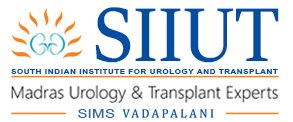Testicular cancer is a disease when testicular cells become abnormal (malignant) in one or both testicles. Testicular cancer is most likely treatable and most often curable even when cancer has spread beyond the testicle. Compared with other types of cancer, testicular cancer is rare. It is the most common cancer in men 15 to 34 years old. The risk of death from testicular cancer is small. Depending on the type and stage of testicular cancer.

SYMPTOMS:
- Painless lump in the testicle (the most common sign)
- A feeling of weight in the scrotum
- Swelling of the testicle.(with or without pain)
- Pain or a dull ache in the testicle
- Scrotum or groin
- Sharp or dull pain in the lower abdomen or scrotum
75 out of 100 complain of painless swelling of the testicle and about 17 out of 100 may have pain.
CAUSES AND RISK FACTORS:
Undescended testicles are the most significant risk factor. When male babies grow in the womb, their testicles develop inside their abdomen. The testicles then normally move down into the scrotum when the baby is born or during their first year of life. However, for some children, the testicles fail to descend. The medical name for undescended testicles is cryptorchidism. Surgery is usually required to move the testicles down. If you have surgery to move your testicles down into your scrotum, your risk of developing testicular cancer may be increased.
DIAGNOSIS:
Physical examination includes look for lumps, firmness or signs of swelling, ultrasound to check any suspicious, blood test need to be done to check tumor markers. Testicular cancer is not diagnosed by taking a biopsy, because doing a biopsy could cause the cancer to spread.
The options for treating your testicular cancer depend on several factors, including the type and stage of cancer, your overall health, and your own preferences. You may receive one of several treatments or a combination. Regular testicular self-examinations can help identify growths early, when the chance for successful treatment of testicular cancer is highest.

